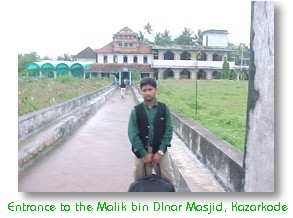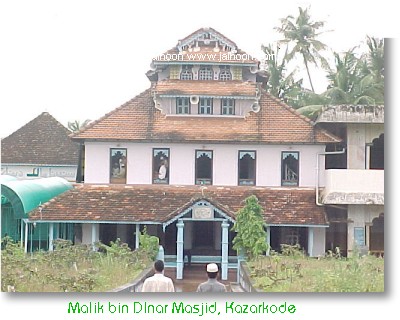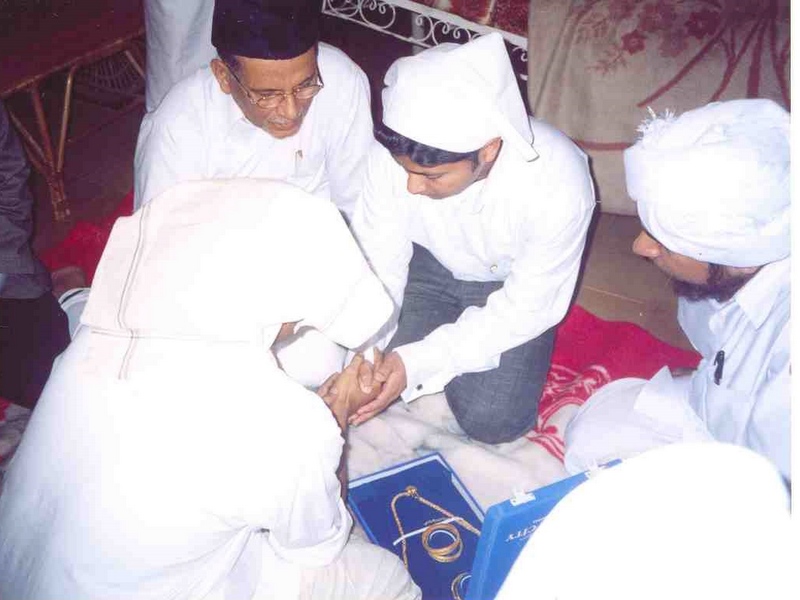On arriving at Malabar, the Arab travelers who had travelled with Cheraman Perumal, built mosques at Koylandi, Ezhumala, Kodungallur, Porakkavur, Mangalapuram. Later they also built in Kasargode, Shrikandapuram, Dharmapatnam and Chaliyam. From there, Malik bin Dinar, Malik bin Habib and friends arrived at Kollam.
After a staying for some period, Malik bin Dinar and a group left for Shehr Muqalla. They passed away on 825 A.D., according to some historians, or on 831 A.D., according to others. Zainudhin Makhdum opines that it took place in 2nd century A.H. and in 7th century A.D. 
The Arab travelers returning from Ceylon landed at Malabar and introduced the religion of Islam to the resident Arabs (who had come earlier). Following their conversion to Islam, the king of that place also embraced Islam. This incident happened at the time of the Rightly Guided Caliphate (Abu Bakr as-Siddiq, Umar al-Farooq, Uthman bin Affan, Ali bin Abi Talib- Allah be pleased with them.) or at the beginning of Umayyad rule.
Akbar Khan has mentioned this in his book. He continues, ‘the king of Sarandeep (Ceylon) was a Muslim’. Following Sarandeep, Islam also spread to Mahaldeep, Lakshadeep and Malabar. It is via these areas that Islam spread in South India, nay, India as a whole. Islam had reached Sind, Punjab etc. only after these countries accepted Islam. (This is as how understood from the writers like Abul Qasim Firishta).
Taking notice of the spread of Islam, the Sarandeep king felt that it would be better to remain a king under an Islamic Caliph. So he sent a delegation accompanied with many gifts to the then governor of the Caliph, Hajjaj bin Yousuf. Among them were many Arab widows and orphans. As they reached the coast of Oman, the wind started to blow against them.
They reached a hostile land ruled by the governor of King Dihr. When Hajjaj bin Yousuf came to know of the seizure of ship, he sent a letter to the king for liberating them. But the letter did no good. Therefore, he sent his men under the able and dynamic general, Muhammad bin Qasim to save the captured ship. Dahir lost the battle and Sind fell to the rule of Muhammad bin Qasim. Although Islam had already reached there, the Islamic rule was established only through Ibn Qasim.


(Note: This is an abridged version of an essay written by the late Grand Qazi of Calicut, Syed Imbichi Koya Thangal, a prominent historian, who had correspondence with major Arab scholars.)



